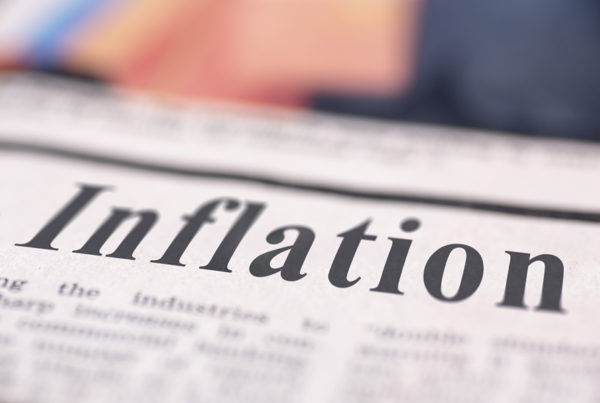Power Up Wealth podcast – A Golden Investment – Episode 69 transcript:
Sharla Jessop 0:00
How should we view a commodity that can be purchased at the local box store along with your vegetables and meat? Yes, I’m talking about gold bars. I’m Sharla Jessop, President of Smedley Financial, and today, my guest and colleague, Jordan Hadfield, will share ideas about gold that you might not have thought of in the past.
Welcome to the SFS Power Up Wealth podcast, where we provide impactful insight and expert opinions on timeless financial principles and timely investment topics, preparing you to make smarter decisions with your money.
Jordan, thank you for joining me today.
Jordan Hadfield 0:52
I’m happy to be here.
Sharla Jessop 0:53
Jordan is a wealth management advisor with Smedley Financial and he has a BFA and CFP designations. Jordan talk to us about the perception of gold.
Jordan Hadfield 1:03
Yeah, you know, I talk to clients about gold often. It’s something that comes up. And there’s typically three different ideas when it comes around gold. Number one is, it needs to be in every investment portfolio for whatever reason. B, I need it for Armageddon, if the world falls apart, I’ve got to have gold. And C, the third the third idea is, it’s a commodity that, you know, it’s a precious metal that’s valuable in some situations and not in others. And maybe I need it, maybe I don’t. And so I would like to kind of expound on these in a little bit more detail. First of all, we’ve been trained since we were young to value gold, right? I mean, even young kids, they get gold stars when they do well. We constantly say she’s got a heart of gold, or we give gold medals to athletes. Gold is, you know, perceptually, the greatest achievement that that we can, that we can reach when we do good, we’re rewarded with gold. We want gold. And I think that as we’ve grown up, kind of attempting to earn our gold medals throughout our lives, in whatever different areas we’ve over valued this precious metal. Interestingly, gold isn’t even the most valuable precious metal, right? It’s third place. But gold has got this crown achievement. And I think that kind of brainwashing, if you will, seeps into our investment mentality. You know, when we’re talking about investing, if someone comes to you and says, I’ve got gold I gotta sell you, and you gotta have it, we’ve already been conditioned to accept that that is fact that we gotta have it. My advice to anyone investing, anyone buying anything, is first determine what your objectives are. And if we talk about life in general, this is pretty easy. I don’t buy an airplane ticket to go to Europe if I don’t have a goal to go to Europe. Doesn’t matter if it’s cheap or not. If I have no intention to go to Europe, I’m not buying it, right? I know what my goals are, and I spend my money according to those goals, hopefully. But with investing, that becomes a lot more complicated. Sometimes we don’t know what our goals are. Sometimes we don’t know why we’re buying an investment. That’s That’s step one is to know what objective our investments have inside of our portfolios. So going back to my two investors, there’s the investor that wants gold in his portfolio. Okay, this investor is typically buying a mutual fund. He’s not buying physical gold. If he or she wants to hold this precious metal for an objective of inflation protection or diversification or growth or protection against the downturn in the market. He or she will typically buy a mutual fund that tracks gold. For a long term investment for a buy and hold strategy, right? We typically don’t recommend gold, and that’s because gold is volatile and historically, regardless of what your objective is, there’s an asset class that typically does better. So if you’re looking for growth, historically, for the long-term, there’s asset classes that do better for growth than gold does. If your objective is inflation protection, long-term, there’s asset classes that outperform. If it’s diversification, there’s asset classes that can provide that to a better degree. So long term doesn’t make a lot of sense to hold a lot of gold in your portfolio. However, short term gold can be really attractive depending on on the economic environment that we’re in. Okay, you know, for example, year to date, it’s May 9, gold is up almost 13% for the year, somewhere in that ballpark, which is pretty good. So if you’re an investor that has got hold gold, currently, you’re pleased with what it’s done, but historically, it hasn’t done that. Interestingly, there’s a couple asset classes that long term, speaking, has outperformed gold considerably. And this might surprise some people. First of all, stocks. I don’t think that would surprise anyone, but then wine.
Sharla Jessop 4:55
Hmm, that’s interesting Jordan.
Jordan Hadfield 4:57
Yeah, for for a long term investor. Wine has outperformed gold from an investment perspective, and has done so considerably. Also stamps. For those of us that collect stamps, we’ve probably got a higher return on investment long term than gold investors. That’s interesting. Violins has outperformed gold. Bonds have outperformed gold. Precious art has outperformed gold, and even platinum has outperformed gold. So there’s some strange asset classes there.
Sharla Jessop 5:27
Very.
Jordan Hadfield 5:28
Yeah, yeah, that have outperformed gold long term. So again, there are times where we want to hold this in our portfolio. Long-term we don’t recommend it.
Sharla Jessop 5:36
So what do you say to the people who are you said, in a doomsday situation, a lot of people like to buy and hold the actual metal bars of gold because they’re concerned about a doomsday situation. Let’s talk about that for a minute.
Jordan Hadfield 5:51
This is another common question I get is, how much gold should I have in my house? And there’s a couple things I want to point out here. Number one, if you’re buying for Doomsday, you cannot buy the mutual fund. For an investor who’s looking to hold gold for other reasons than doomsday mutual funds are easy. It’s it’s very cost effective and efficient to get in and out of a mutual fund. Trading is easy. There’s a market for it. But if you’re preparing for Armageddon, you cannot buy that mutual fund. It does do does you know good? You’ve got to have the physical gold. There are companies out there that will store that physical gold for you. That does you no good in Armageddon. You have to have possession of it. And so this creates a couple different problems. Number one, to buy physical gold, you have to buy typically, from a gold dealer. And physical gold has got a markup. So you buy it at a premium, there’s a transaction cost to buy physical gold. On the flip side, if you decide to sell that gold, you often have to sell it at a discount, so you’re buying high and you’re selling low, which is the exact opposite of what we want to do as an investor. And there’s really no way to avoid this. So that’s a concern. Number one. Number two, you got to store it. Gold is heavy. It’s not a light metal. It’s heavy. You’ve got to have a significant place to store it that’s safe from all the different, different risks of that it may face in your house, right? Fire, theft. So you got to have a safe for it. Those can be expensive if you want something that’s good, fireproof, hard to crack. So that’s a problem. Insuring it can be difficult. So it presents some challenges in that way. But I want to talk a little bit more in detail about an Armageddon situation, because I think in Armageddon the most I always say the most important things are going to be bullets, beans and band aids. In other words, we need to be able to protect ourselves in a situation of anarchy, we need to be able to feed ourselves, and we need to be able to take care of ourselves if there’s a medical emergency. I don’t think the world in an Armageddon situation will operate like it does right now. I don’t think that we’ll just be able to go into Walmart and rather than using dollars because the government collapsed, use gold to buy our bread.
Sharla Jessop 8:04
How are you gonna take a chisel with you everywhere you go. Chisel off a little piece, you know, and a scale so you can make sure you give the right amount. It just doesn’t make sense in any scenario.
Jordan Hadfield 8:12
Yeah, exactly. I think the entire system changes at that point, and gold doesn’t have any inherent value. Gold is a precious metal, and it’s valuable now, but, but again, it’s only valuable because we use it in jewelry, and we use it for that, for those kind of purposes, right? We can’t eat it. It’s not going to feed us. And in an Armageddon situation, I think food and medical supplies are going to be far more valuable than gold. That’s what people are going to want. Is food, medical supplies, that kind of stuff, oil, gas may be very, very valuable in that situation. Yeah, so I think the entire system changes in an Armageddon situation, and to be able to value gold and trade gold like you say, how do we know what gold is worth at that point? How do we use it as a currency if we’re buying gold bullion in a situation like that? I think it’s really problematic. Even in that situation, I don’t recommend a lot of gold. Typically the rule for for someone who wants to have some gold in their house, I would say no more than about 5% of your total financial portfolio. So having gold under your bed, or, you know, in a safe in your home, provides you a little bit of security and helps you sleep better at night. Great, do it, but keep it in balance. And I think 5% is probably, you know, healthy amount there.
Sharla Jessop 9:36
I think that’s good, good reason and good information. I don’t think people realize, you know, you could pick up when I talk about gold being purchased at a box store. You can buy gold at Costco, which has become quite a fad right now, and that’s great. You’re purchasing and hanging on to it, but if you need to sell it, you still have to go back to a gold broker, someone who’s going to deal in precious metals and pay a fee. Costco is not going to take it back. Costco is not going to, you know, purchase your gold for a trade.
Jordan Hadfield 10:06
You’re right. Costco selling gold has created at least here locally, that I’m that I’ve seen kind of an excitement around it. I can now get gold at Costco. Keep in mind, Costco is a business, and they’re selling this gold because they’re profiting from it. Just because you can buy it at Costco doesn’t mean it’s a good investment. And I think for most people, gold is probably not the best investment.
Sharla Jessop 10:28
Yeah, something that can be more liquid and also something that helps them reach their long-term goals, like you mentioned in the beginning,
Jordan Hadfield 10:34
Yeah.
Sharla Jessop 10:35
Something for retirement or whatever the need might be in between.
Jordan Hadfield 10:39
Yeah, absolutely. And you know this, the topic of our conversation today is gold, but I think it is worth mentioning silver. Silver is actually a worse investment than gold. So for anyone who’s thinking, okay, well, maybe gold isn’t for me, I’ll move into silver. We’re moving the wrong direction. Gold is a better investment than silver. It’s interesting.
Sharla Jessop 10:56
Why is that?
Jordan Hadfield 10:57
That’s a good question. I just think there’s a higher demand for gold. You know, both assets are volatile. Both assets are used. They’re in the same asset class, right? But I think gold just has a little bit more prestige. There’s more value for it. You know, gold is a huge mover in our economy. About $162 billion is traded average per day in the gold market, but most of that is jewelry. Most of that is not investment. Most of it’s jewelry. There’s a huge market for gold and jewelry, and so there’s a lot of trading there, and you just see more gold in that area than you do see silver. So demand is really what it comes down to.
Sharla Jessop 11:37
Interesting. Well, Jordan, that’s all very interesting. Thanks for sharing your insights on gold. I’m sure everyone has become just a little more educated.
Jordan Hadfield 11:45
Yeah. Thank you very much for having me.
Shane Thomas 11:51
Thank you for joining the Power Up Wealth podcast. Smedley Financial is located at 102 S 200 E Ste 100 in Salt Lake City, UT 84111. Call us today at 800-748-4788. You can also find us on the web at Smedleyfinancial.com, Facebook, Instagram, Twitter, and LinkedIn. The views expressed are Smedley Financials and should not be construed directly or indirectly as an offer to buy or sell any securities or services mentioned herein. Investing is subject to risks, including loss of principal invested. Past performance is not a guarantee of future results. No strategy can assure a profit nor protect against loss. Please note that individual situations can vary. Therefore, the information should only be relied upon when coordinated with individual professional advice. Securities offered through Osaic Wealth, Inc., member FINRA/SIPC. Investment advisory services offered through Smedley Financial Services, Inc.® Osaic Wealth is separately owned, and other entities and/or marketing names, products, or services referenced here are independent of Osaic Wealth.




